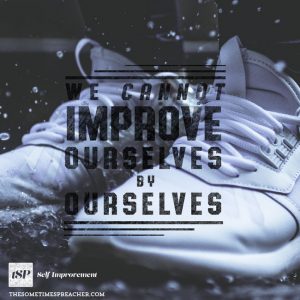Let’s play fill in the blank. _________________________ is my life.
What did you put in there? What is your life? Did you write in something that you love to do? If you’re a musician, you might have put in music, composing, songwriting, or your chosen instrument in the blank. If you’re an athlete, it could be competing, training, or playing the game. If you’re in ministry, like me, you might complete that sentence with preaching, evangelism, or coffee. (Let’s be honest, it’s coffee for a lot of people.)
There are as many answers to this question as there are people in the world. But is what we put in that blank worthy of being our life? If music is your life, what happens when you can no longer play? If sports are your life, what happens when you can no longer compete. (And what does this mean for Cleveland Browns fans?) If coffee is your life, what do you do when Starbucks’ prices go up, again? If something is your life, it should be greater than you, not less.
The apostle Paul provides an answer to this question in Colossians 3:4. “When Christ, who is your life, appears, then you also will appear with him in glory.” Maybe he didn’t mean it the same way that we mean it, but the point is well-taken. Jesus is my life. That’s the answer of every Christian, whether they feel it is true or not. Your life is not music, sports, work, or coffee. Your life is Jesus.
Jesus is your life in a way that is different from those other things. Those things aren’t your life, but they might be your obsession. Jesus, on the other hand, is the One who sustains your life. He is your life because he gives you life. He is your life because he has conquered death, and can never die again. He is your life because he promises to give you a glorious resurrection into eternal life. You can live without a lot of things, and you can probably live without that one thing that is your obsession. But you cannot live for eternity without Jesus. He is your true, eternal, and abundant life.







